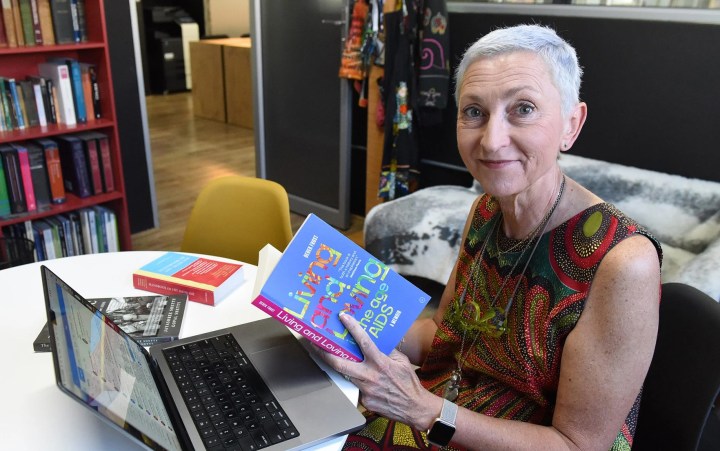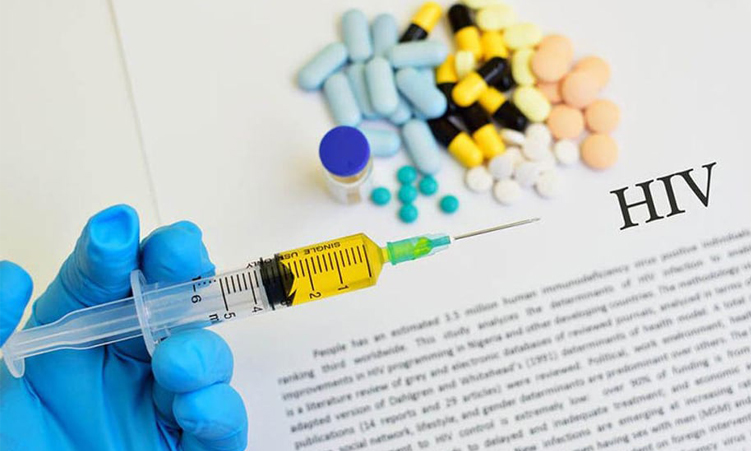The Ministry of Health and Social Services is optimistic about a new HIV-AIDS preventative jab, which is currently on trial in a few African countries.
The injection, a pre-exposure prophylaxis (lenacapavir), is in its second phase study and has so far shown positive signs, with the potential to help both those living with HIV-AIDS and cushioning those who are not infected.
In a recent article published by the University Cape Town, Linda-Gail Bekker, a professor of medicine and deputy director of the Desmond Tutu HIV Centre at the Institute of Infectious Disease and Molecular Medicine, says clinical trials in South Africa and Uganda have shown that a twice-yearly injection of the new jab gives young women total protection against HIV infection.
The trial tested whether the six-month injection of lenacapavir would provide better protection against HIV infection than two other medicines – both daily pills.
All three medications are pre-exposure prophylaxis (or PrEP) medicines.

Health minister Kalumbi Shangula yesterday told Desert Radio that the pilot study has confirmed the injection’s effectiveness.
This marks a significant milestone in the ongoing fight against HIV-AIDS, he said.
“Medicine is not static, it is evolving all the time. And the world is faced with many health challenges, and medical scientists are always at work to see how best to deal with those challenges. “The latest pilot study on the prevention of HIV by using a preventive vaccination, so to say, has yielded some positive results, which are quite encouraging,” Shangula said.
He said the world has been faced with the HIV challenge for many years now, and many medical interventions have been discovered.
“Most of them, are yielding positive results, including here in Namibia. The measures which we have put in place are actually giving us the encouraging result and that we have been able to bring HIV under control,” he said.
Bekker says the Purpose 1 trial, with 5 000 participants, took place at three sites in Uganda and 25 sites in South Africa to test the efficacy of lenacapavir and two other medicines.
She says lenacapavir interferes with the HIV capsid, a protein shell that protects HIV’s genetic material and enzymes needed for replication.
“It is administered just under the skin once every six months. The randomised controlled trial, sponsored by drug developers Gilead Sciences, tested several things,” she says.

“The first was whether a six-monthly injection of lenacapavir was safe and would provide better protection against HIV infection as PrEP for women between the ages of 16 and 25 years than Truvada F/TDF, a daily PrEP pill in wide use that has been available for more than a decade,” Bekker said.
The trial also tested whether Descovy F/TAF, a newer daily pill, was as effective as F/TDF.
In eastern and southern Africa, young women bear the brunt of new HIV infections.
They also find a daily PrEP regimen challenging to maintain.
During the randomised phase of the trial, none of the 2 134 women who received lenacapavir contracted HIV.
This proved to be 100% efficient.
Bekker said this breakthrough provides great hope that there is a proven, highly effective prevention tool to protect people against HIV.
Catholic Aids Action spokesperson Tuuliky Amwele says the implementation of the new HIV jab would only help Namibia combating HIV if it is affordable.
“It will mean a lot to us, as long as it is not expensive,” she says.
Amwele says some people do not take their medication because they don’t have food to take it with.
“So far, we are doing well. When it comes to HIV-AIDS, we maybe have just about 2% new infections,” she says.
Stay informed with The Namibian – your source for credible journalism. Get in-depth reporting and opinions for
only N$85 a month. Invest in journalism, invest in democracy –
Subscribe Now!








